How To's
Best Boutique Fitness Franchise Options and Why You Should DEFINITELY (or definitely not) Invest
Published
5 years agoon
By
Ellie M
It’s no secret the fitness industry is booming in the US. A record 64.2 million Americans belonged to a health club in 2019. The figure is up from 62.5 million in 2018 according to the International Health, Racquet & Sportsclub Association. It’s also no secret the boutique fitness industry is booming. In fact, the biggest growth sector in an IHRSA report reviewing the fitness industry, was boutique. These are the small, specialized fitness studios with big price tags for members or participants. They have household names like SoulCycle, Orangetheory, Row House, Pure Barre, and Club Pilates. According to the IHRSA, between 2013 and 2017, membership at traditional gyms grew by 15%, while membership to boutique studios grew by 121%. So what is the best boutique fitness franchise? More importantly, what do you need to know about the best boutique fitness franchise options out there today before you invest?
Let’s start by taking a look at the industry, what’s driving it, and what the pros and cons are.
The Pros
Profits. Health club industry profits have drastically risen in recent years. For instance, from 2017-2018, profits rose 8% to $32 billion. The jump is at least in part due to the boutiques, whose consumers pay twice as much for memberships gyms like Planet Fitness, Crunch, or Gold’s Gym.

Shifting Culture Driving Growth. Boutique brands are booming in part because they have transformed into a go-to social destination. In a recent survey performed by ASweatLife, a health and wellness media company, 78% of respondents were more likely to try a new workout with a friend. In an interview with CNBC, ASweatLife’s editor and chief, Kristen Geil noted of their largely millennial readership’s view on boutiques, “[i]t’s not necessarily the fitness aspect, but a fitness activity that’s replaced your standard happy hour [. . .]” Importantly, Millennials are the most health-conscious generation and have a buying power slated to reach $1 trillion by the end of 2020.
The Cons
Growing trends. On-demand fitness services such as Peloton, the Mirror, Tonal, and Aaptiv are growing quickly. The companies are taking advantage of improved streaming capabilities and Millennials’ desires for personalization, freedom, and experiences over material things.
Last year, 21% of respondents to ASweatLife’s survey said they were spending on digital fitness, more than twice the share in 2016. The industry leader and behemoth, Peloton, a high-tech cycle with live streaming and on-demand classes on a built-in screen, has plans to go public. The company is currently valued at approximately $4 billion, as it quickly acquires users and eats into the traditional gym/boutique’s customer pie.
Not recession proof. While growth in the fitness industry is strong now, these uncertain economic times raise caution for boutique investments. If a recession hits, consumers are more likely to drop boutiques with their high price premiums from their budget for cheaper gyms or streaming services.
With the pros and the cons out there, what are the best boutique investment opportunities? Here are some of the biggest names in the industry and some helpful information about them.
The Best Boutique Fitness Franchise Opportunities
1. Cyclebar
CycleBar is an indoor cycling fitness chain providing intensive boutique cycling classes at significantly lower rates than competitors like Soul Cycle. The Cycle Bar experience is built on three primary elements. CycleStars the companies dynamic instructors, CycleBeats, energetic playlists that can be downloaded online, and CycleStats, a stat tracker members use to track six key performance metrics. The classes feature in an intense environment and energy-enhancing video graphics and light shows.
Total Estimated Initial Investment: $284,350 to $497,150
Number or Existing Locations: Over 200
Liquid Capital Required: $150,000
Net Worth Required: $600,000 to $6,000,000
Franchise Fee: $50,000
2. Row House
Row House is fitness concept featuring immersive, energetic indoor rowing classes. The franchise offers 45-minute rowing workouts that are low-impact but high-intensity. Each of its six classes combine cardio, resistance training, stretching, and rhythm-based rowing. Every class is fueled by a good soundtrack.
Total Estimated Initial Investment: $257,700 to $400,800
Number of Existing Locations: Over 250
Liquid Capital Required: $100,000
Net Worth Required: $500,000
Franchise Fee: $60,000
3. Orangetheory Fitness
Orangetheory Fitness is a boutique studio offering a 1-hour, high intensity interval training workout. Its routines encompass training endurance, strength and power for a full-body workout. The franchise uses heart rate-based interval training, which burns more calories post-workout than traditional exercise. Members wear an exclusive “OTbeat” heart rate monitor to track real-time results, which are displayed on large screens throughout the studio. Intensity is based on each individual’s heart rate zones, making the workout effective for all fitness levels. Certified coaches ensure participants do not over or under training.
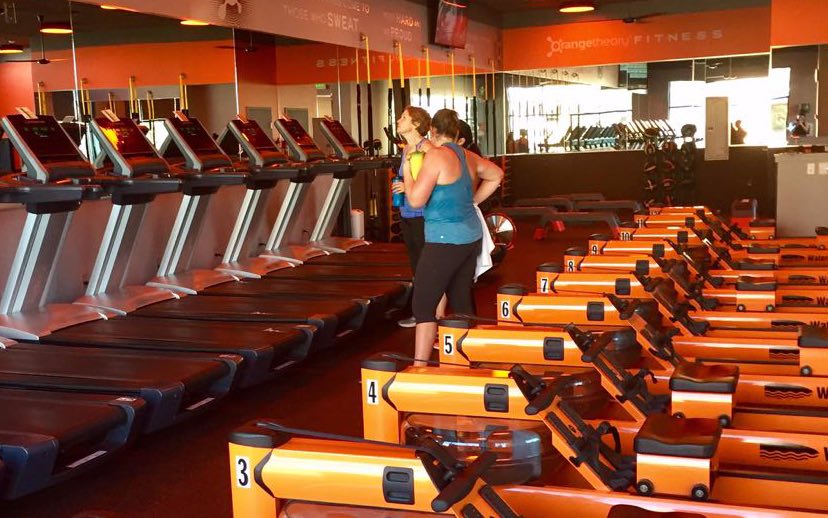
Orangetheory offers a no-contract monthly membership fee that includes either unlimited or a set number of classes. The company experienced 952% U.S. franchise growth from 2014 to 2019.
Total Estimated Initial Investment: $560,000 to $1,000,000
Number of Existing Locations: Over 1,200
Liquid Capital Required: $150,000
Net Worth Requirement: $500,000
Franchise Fee: $60,000
4. F45 Training
F45 Training concept was launched by CEO Rob Deutsch, who wanted to create a fitness profram that offered a personalized approach without the personal training price tag. The franchise created 27 different workouts based on a high-intensity circuit training model. F45 also has a database of more than 3,000 exercises. New workouts and new exercises are constantly being developed.
The name is a nod to the workout’s concept. The “F” stands for “functional” (the types of exercises) and “45” is how long each and every class lasts in minutes
Total Estimated Initial Investment: $100,000 to $300,000
Number of Existing Locations: 985
Liquid Capital Required: $100,000
Net Worth Required: $150,000
Franchise Fee: $50,000
5. 9Round
9Round is a specialized fitness center offering a kickboxing themed fitness programs. The routines incorporate functional, interval, cardiovascular, and circuit training regiments. The programs consist of a proprietary system of nine challenging workout stations developed by a World Champion Kickboxer. Members can show up at their convenience, there are no class times. Trainers teach members how to wrap hands for support when punching.
9Round also incorporates heart rate training to ensure members stay in target fat burning zone. Every three minutes, members move to the next exercise station. After station nine, the 30-minute full-body workout is over. The company experienced 239.5% U.S. franchise growth from 2014 to 2019.
Total Estimated Initial Investment: $99,675 to $143,075
Number off Existing Locations: Over 600
Liquid Capital Required: $35,000
Net Worth Required: $150,000
Franchise Fee: $30,000
6. Club Pilates
Club Pilates offers workouts featuring a Reformer—a Pilates apparatus using a spring tension and body weight—for a full-body workout. The workouts are tailored to fit individual needs by comprehensively certified instructors. In addition to the reformer, Club Pilates classes feature additional pilates equipment pieces including TRX, Bosu, Springboard, EXO chairs, andTriggerpoint foam rollers, Club Pilates offers 7 different class styles at 4 different levels. There are also four different membership options based on the number of classes (4-pack, 8-pack, monthly unlimited, and annual). The company experienced an astounding 2,773.7% U.S. franchise growth from 2014 to 2019.
Total Estimated Initial Investment: $167,967 to $280,446
Number of Existing Locations: Over 850
Liquid Capital Required: $80,000
Net Worth Required: $300,000
Franchise Fee: $60,000
7. Pure Barre
Pure Barre offers an effective total body workout focused on low-impact/high- intensity movements that improve strength and flexibility. Barre itself, is a type of workout based on the use of a ballet barre. The routine has exploded in popularity in recent years. Pure Barre’s workouts use small movements for stretches and strength training designed to sculpt and shape the body. Pure Barre more than doubled its U.S. footprint in the last five years. The company expanded its number of U.S. franchises by 101.6% in the same time.
Total Estimated Initial Investment: $178,350 to $370,000
Number of Existing Locations: 460
Liquid Capital Required: $90,000
Net Worth Requirement: $300,000
Franchise Fee: $60,000
8. iLoveKickboxing
iLoveKickboxing is a fitness boutique incorporating a kickboxing regiment into a high-intensity and strength conditioning workout. The program is class based, and each class includes a warm-up, punching bag drills, and partner work. Classes are designed to exercise the full body, and especially target the biceps, triceps, shoulders, back, abs, glutes, and quads.
Total Initial Investment: $214,944 to $559,494
No. Existing Locations: 256
Liquid Capital Required: $125,000
Net Worth Required: $500,000
Franchise Fee: $50,000
9. Burn Boot Camp
Burn Boot Camp is a women-only weightless fitness concept. Catering to fitness-minded women, perks include free childcare, healthy food recipes, and personal fitness consultations. Burn Boot Camp also makes use of Facebook Live, Instagram, and YouTube to stay in touch with customers and let them know about promotions and fitness challenges. The concept was started by husband-and-wife team Devan and Morgan Kline. Devan, a former minor league pitcher launched a career as a Certified Personal Trainer shortly after leaving the baseball world. Founded in 2012, the company quickly gained its 219 current locations.
Total Estimated Initial Investment: $148,830 to $353,150
Number of Existing Locations: 219
Liquid Capital Required: $70,000
Net Worth Required: $300,000
Franchise Fee: $40,000
10. Iron Tribe Fitness
Iron Tribe Fitness offers a distinctive blend of group fitness and one-on-one coaching with weight training and HIIT programs for an intensive workout experience. Founded in Birmingham, Alabama — a city fondly nicknamed the Iron City for its rich history in iron and steel — Iron Tribe Fitness blends one-on-one coaching with group fitness. Workouts are limited to 20 participants and 45 minutes.
Total Estimated Initial Investment: $305,000 to $438,500
Number of Existing Locations: Over 38
Liquid Capital Required: $50,000
Net Worth Requirement: $250,000
Franchise Fee: $42,000
You may like
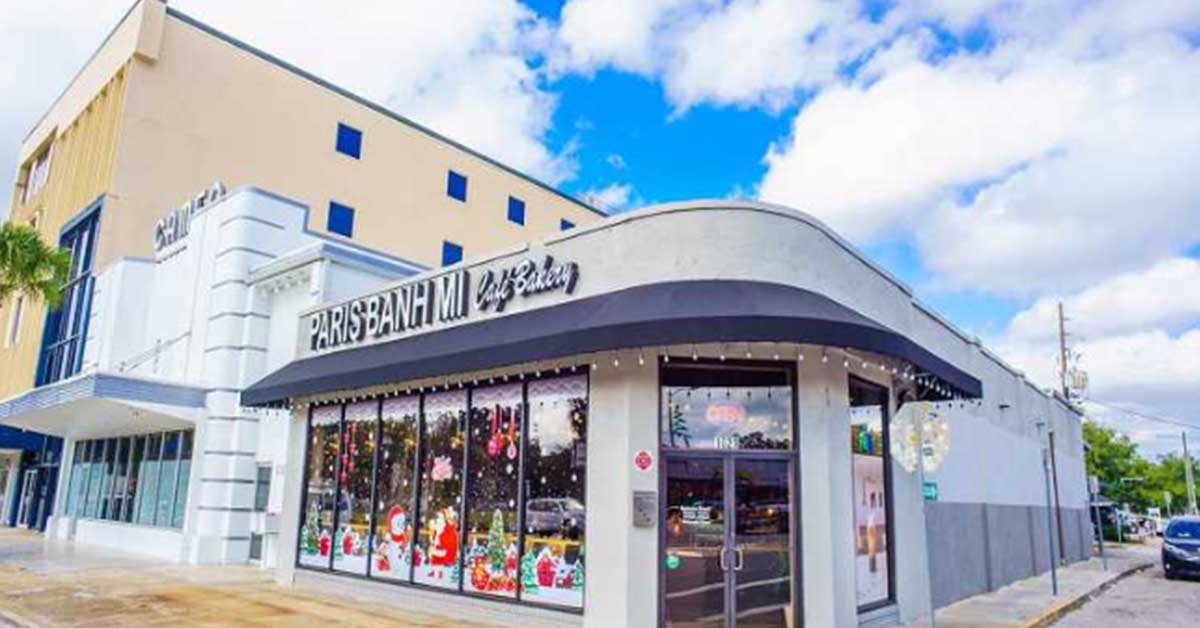
Are you gearing up for a new business in 2024? Forget the next big tech start-up -the latest trend in town might be a perfectly toasted baguette. Take Paris Banh Mi Cafe and Bakery, for instance. This Vietnamese sandwich shop is rapidly growing, with locations popping up from coast to coast, from California to Florida.
But what’s the secret behind their success? Explore why the Paris Banh Mi franchise has snowballed in the last two years and be inspired to start your own business .
About Paris Banh Mi
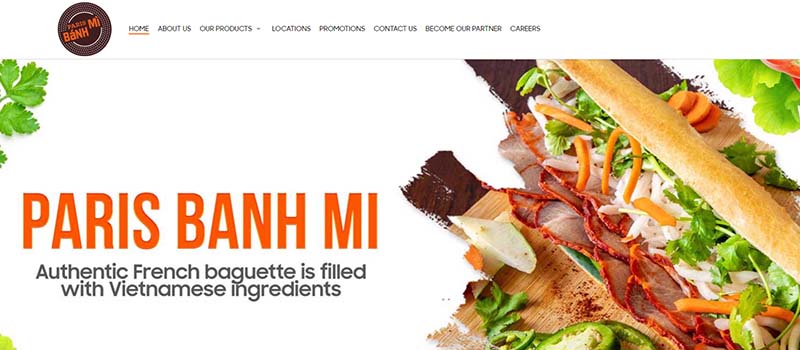
The French baguette was introduced in Vietnam in the mid-19th century when the country was still a part of French Indochina. In the 1950s, Saigon saw the birth of a unique Vietnamese sandwich, “bánh mì,” which quickly became a favorite food of a large part of the population.
The story of Paris Banh Mi started in Orlando, Florida, at 1021 E Colonial Drive in 2019. Hien Tran and Doan Nguyen, a married couple passionate about food, opened the first Paris Banh Mi location. Their concept was simple: bring the delicious flavors of Vietnamese banh mi sandwiches, traditionally baguettes filled with savory meats and pickled vegetables, to a broader audience.
The customers quickly fell in love with the fresh ingredients, bold flavors, and convenient fast-casual setting. Now, Paris Banh Mi Cafe and Bakery promises to bring their customers the best “Baguette Banh Mi” taste.
In just two years, the laid-back cafe and bakery in Florida multiplied into a chain of stores in the county. Today, Paris Banh Mi is serving customers in 46 locations all across the USA. The company plans to expand to 100+ locations by 2026.
Each Paris Banh Mi Cafe and Bakery has a clean and spacious dining area, fast service, friendly staff, and a selection of delicious food and pastries. Take a peek at some of their mouth-watering baguette sandwiches filled with authentic Vietnamese ingredients.
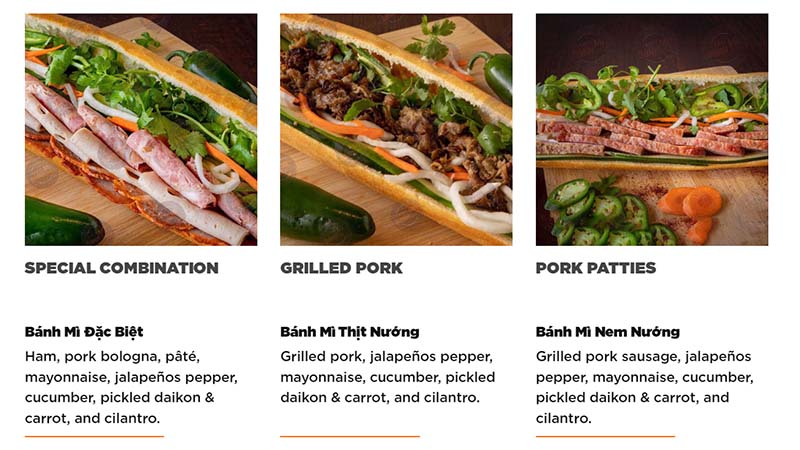
Source: Paris Banh Mi website
For those craving something sweet, the bakery indulges you with a variety of French pastries. Check out their sandwiches, pastries, and beverages on the Paris Banh Mi Cafe and Bakery menu page.

Source: Paris Banh Mi website
Why Own a Paris Banh Mi Franchise
Paris Banh Mi is a franchised quick-service restaurant offering exciting opportunities for aspiring business owners. Many nail salon owners and aspiring entrepreneurs are switching to buying a Paris Banh Mi franchise. The main reasons why they love Paris are:
- It opens a great opportunity and is more profitable.
- Seamless franchising process and fewer things to worry about
- Required low capital to open
- Higher end-of-year profits
The benefits extend beyond operational efficiency. Paris Banh Mi boasts a surprisingly low-cost entry point compared to other franchises.
The initial franchise fee is manageable at $60,000. The total investment for opening a Paris Banh Mi can range from $200,000 to $500,000. This amount reflects the option to acquire a pre-existing, equipped location (second generation) for a lower investment cost or a complete build-out from scratch option.
Regardless of the chosen route, the investment is significantly lower than that of building a business from the ground up, making Paris Banh Mi an attractive option for many entrepreneurs.
Licensing Information
Owning a Paris Banh Mi franchise is not just about delicious food! The company is looking for dedicated individuals who can run their restaurant full-time. They will provide a multi-day training program for new franchisees. In addition, Paris Banh Mi offers ongoing support for franchisees, guiding them to make informed decisions and thrive in this exciting industry.
You’re a good fit for a Paris Banh Mi Cafe Bakery franchise if you are:
- Passionate about food, especially fresh baguettes and pastries
- A self-starter with a proven track record in business
- Financially responsible with a focus on results
- Ready to fully commit to building the Paris Banh Mi brand
If you have what it takes, don’t hesitate to contact them through the franchise hotlines on their franchise opportunities page.
Conclusion
Buying a restaurant franchise is one of the most attractive routes in the world of franchising. Paris Banh Mi makes owning your own business a lot easier. Forget the high costs and headaches of starting from scratch. Their low investment and comprehensive training program mean you can be your own boss with a delicious product. If you are ready to take a bite out of success, contact Paris Banh Mi today!
How To's
Chick-fil-A Franchising Opportunities in 2024
Published
1 year agoon
March 14, 2024By
Dan Wesson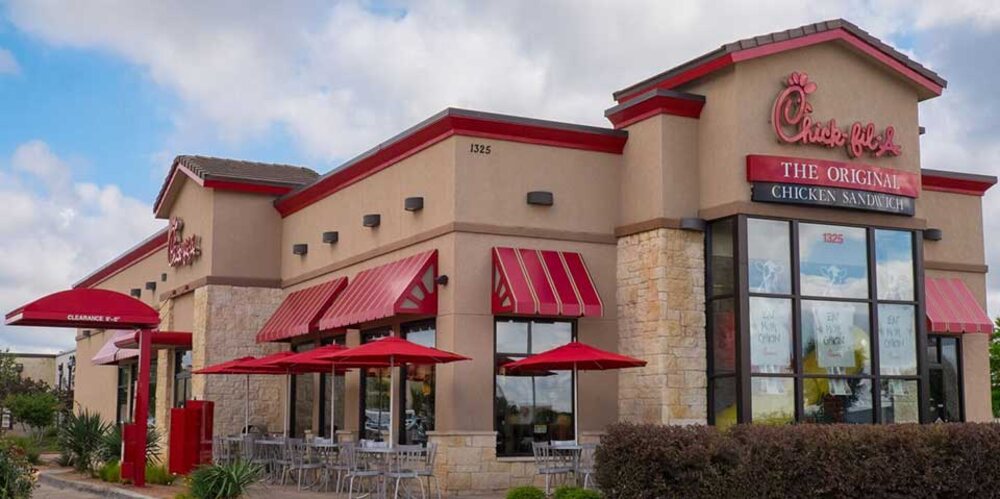
Buying a franchise from Chick-fil-A is an excellent money-making and healthy option. The fast-food chain has been serving hungry consumers the most delicious chicken sandwiches unmatched by other fast-food restaurants. Buying a Chick-fil-A franchise means investing in a good business and your future. It also lets you continue the culture behind the popular food chain. Here are Chick-fil-A franchising opportunities that will give you entrepreneurial freedom in 2024.
Company Overview
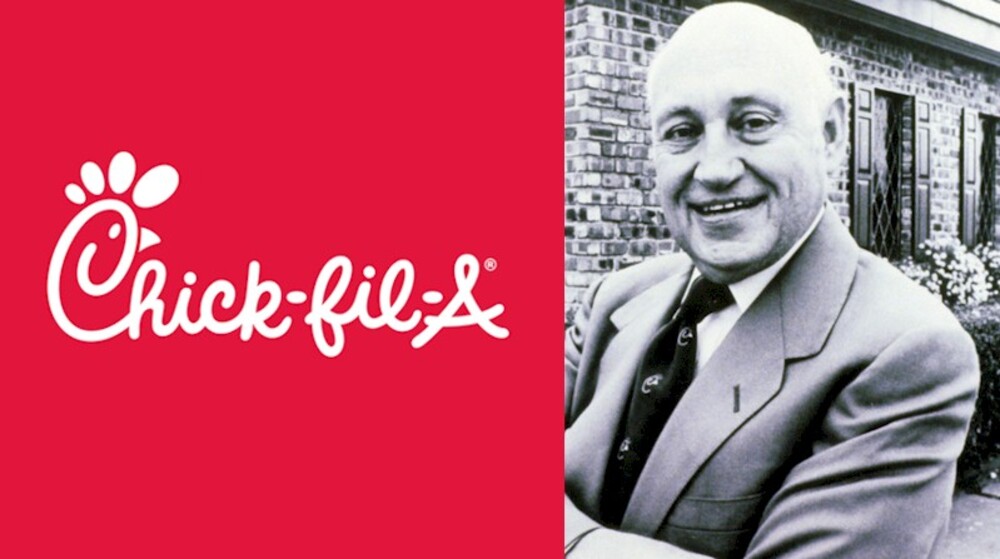
Founded in 1946 by Truett Cathy, Chick-fil-A is deemed one of the longest-running chicken sandwich chains in the United States. The founder opened his first chain in Hapeville, Georgia, and has become a favorite soul food for many. Truett had worked in restaurants seven times a week and knew the importance of rest. That’s why he vowed to close Chick-fil-A every Sunday. He values rest and worship, so he sets aside one day of the week for his employees—a practice that Chick-fil-A still upholds today.
Chick-fil-A also selects franchisees that uphold their values and passion. The company takes great care in selecting who they do business with, which includes getting to know candidates through a lengthy and intensive selection process. The founder’s vision is to influence the people and communities they serve. Chick-fil-A also seeks franchise candidates in Puerto Rico, Canada, and the United States.
Chick-Fil-A candidates are required to show personal financial integrity and stewardship. They also need to have proven experience in leadership and a strong business acumen. Chick-fil-A ensures that candidates showcase entrepreneurial spirit, a strong character, and a growth mindset. This is to uphold the vision and values that Truett started in 1946.
Franchise Training Details
- The initial on-site training programs last three to four weeks. However, the duration and actual location of the training will vary.
- The training program primarily covers operational aspects, such as food preparation, service, customer relations, accounting, communications, purchasing, planning, maintenance, policies, management styles, and marketing.
- The franchisor may require franchisees to attend various conferences and seminars occasionally. This is on top of the initial training program.
- The franchisor may also offer various programs that operators can use in advertising products or hiring staff, which aren’t stipulated in the Franchise Agreement.
Franchise Territory
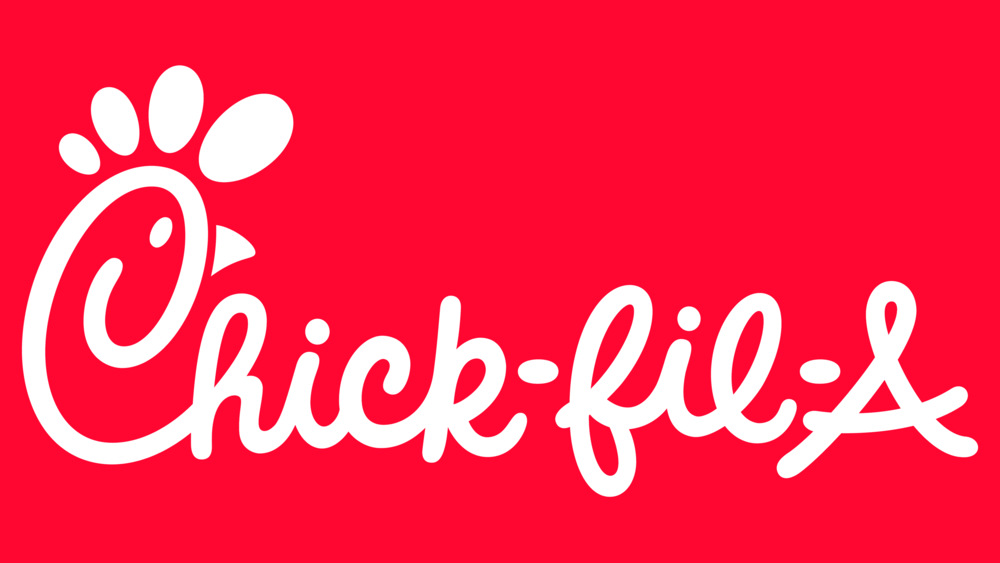
- The franchisor will grant franchisees one Chick-fil-A restaurant at the franchisor’s designated location.
- Franchisees will not get exclusive or protected territory, so they may face competition from other operators.
Franchise Obligations and Conditions
- Franchisees must devote their time and effort 100% to operating their Chick-fil-A restaurant.
- The franchisor only allows franchisees to sell products approved by Chick-fil-A. This also applies to franchisees with a Chick-fil-A-associated food truck.
Franchise Term and Renewal
The franchise term expires on early December 31, the year the agreement is signed or whatever the lease expiration is. Franchisees may apply for one-year extensions unless written notice is given 30 days before the franchise term expires.
Financial Assistance
- The franchisor designates locations, leases, and subleases the store’s premises to franchisees. The lease and sublease terms will vary depending on the type of Chick-fil-A restaurant and location.
- The franchisor also engages in concession agreements that oversee the utilization of non-traditional satellite unit locations with the proprietors or administrators of said satellite unit spaces.
- The franchisor offers extended payment periods for specific pre-opening costs stipulated in the Franchise Agreement. Additionally, the franchisor leases equipment to operators, charging a monthly rental fee based on the fair market rental value established by Chick-fil-A using its singular and exclusive business judgment. It’s important to note that neither the franchisor nor any affiliated entities provide any financing arrangements to operators, either directly or indirectly.
Did You Know?
Here are some fun facts about Chick-fil-A you need to know!
- Did you know that Chick-fil-A only uses peanut oil for frying? That’s what makes the chicken its unique flavor! Chick-fil-A is also the single most significant purchaser of peanut oil in the United States. They also believe peanut oil is a healthier option.
- The best Chick-fil-A promotional gig was the “First 100,” where the first 100 customers inside a new Chick-fil-A restaurant would get free chicken for a year.
- Did you know that the founder, Truett Cathy, invented the chicken sandwich? He worked for a restaurant in Atlanta, and the newly delivered chicken breasts were too big to serve as airline food. He turned this into a meal for the staff.
- You can get a free ice cream cone by walking up to the counter and trading your toy when ordering the kid’s meal.
Franchise Cost
Your Investment
| Name of Fee | Low | High |
|---|---|---|
| Initial Franchise Fee | $10,000 | $10,000 |
| Opening Inventory | $13,500 | $140,000 |
| First Month’s Rental of Equipment | $750 | $5,000 |
| First Month’s Lease/Sublease of Premises | $2,550 | $85,500 |
| First Month’s Insurance Expense | $240 | $12,000 |
| Additional Funds | $491,345 | $2,550,935 |
| ESTIMATED TOTAL | $518,385 | $2,803,435 |
Other Fees
| Type of Fee | Amount |
|---|---|
| Advertising | May vary (a) between 0% to 3.25%, to be determined by Chick-fil-A, as a percentage of gross receipts or (b) by vote of operators in local or regional areas. |
| Advertising Support and Services Fee | Advertising support and services fees incurred, if any, will vary based upon the support and services offered by the franchisor, and selected and received by the operator; the current in-house blended hourly rate for services is $100; Operator will pay any additional fees, costs and expenses as applicable. |
| Additional Franchise Fee | $5,000 for each additional Chick-fil-A restaurant business. |
| Business Services Fee | $300 (monthly). |
| Rent (Traditional Restaurant) | $2,550 to $85,500 (including where applicable, percentage rent). |
| Occupancy Charge (Satellite Unit) | Determined under the concession agreement attached as an exhibit to the concession sublicense agreement; currently estimated to range between 4% and 30% of gross receipts. |
| Food Truck Usage Fee (Food Truck) | Currently $2,100 to $3,100, plus additional fees, costs and expenses. |
| Food Truck Insurance Fee (Food Truck) | Currently $250 to $450 (monthly). |
| Insurance | $240 to $12,000 (monthly). |
| Equipment Rental | Currently $750 to $5,000 (monthly). |
| Hardware and Software Support; High-Speed Internet Access | $9,500 to $20,000 (annually). |
| Fines – Minimum Standards and Procedures | Will vary under the circumstances. |
| Indemnification | Will vary under the circumstances. |
| Operating Service Charges | Determined by formula. |
| Credit Cards Fees and Related Processing Fees | Will vary. |
| Highway Signage | Will vary under circumstances. |
| Interest on Late Payments | The maximum rate permitted by law, or if none, 1.25% per month. |
| Cash Handling System Services | $85 to $450 (monthly) |
| Reimbursement of Cost of Performance | Costs and expenses of performance. |
| Holdover Liquidated Damages | Double the base rent and percentage rent. |
Here are the Chick-fil-A franchise costs:
If you’re looking for another investment opportunity, visit Franchise How’s website for more information.
How To's
Zoom Sewer and Drain Cleaning Franchise Cost
Published
1 year agoon
March 12, 2024By
Dan Wesson
Taking care of your home’s plumbing system is an essential part of being a homeowner. However, not everyone has the skill and patience to do it, and so franchises such as Zoom Sewer and Drain Cleaning are some of the most lucrative. Here’s what you need to know if you’re thinking of getting it:
Franchise Description
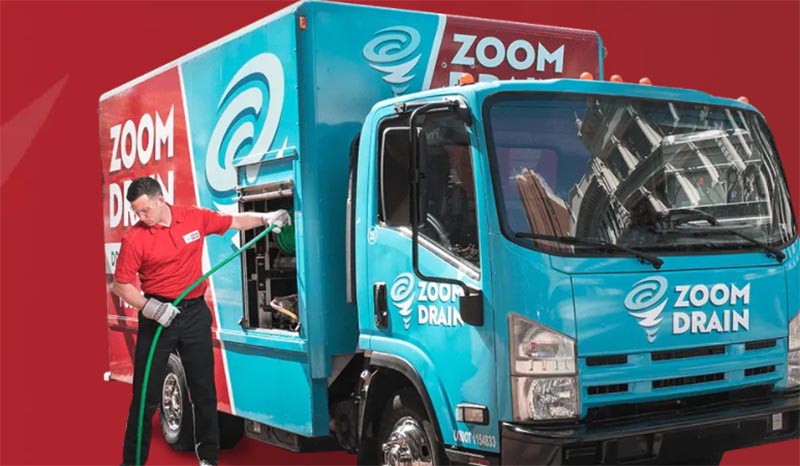
Zoom Sewer and Drain Cleaning provides drain cleaning, maintenance, sewer inspections, repair and replacement services for residential and commercial customers. The business began in 1995 and had been franchising since 2013. They have their headquarters in Norristown, Pennsylvania, and Zoom Franchise Company, LLC is the franchisor.
Training

Training for the franchisee’s principal owner and personnel will be provided by the franchisor or its representatives and agents. Before starting your franchise, Zoom Sewer and Drain Cleaning will require you to complete their training program. It comes in two phases:
- Phase 1: 2 to 3 days training at the Franchise Business
- Phase2: 2 to 3 days in Norristown, PA
The franchisor may also require you to attend additional training during the length of your term agreement. The franchisor is planning to hold a 2 to 3-day national Zoom Fest yearly. This will be held in Norristown, PA, or any location it designates. They will require franchisees to attend, but their managers will be welcome.
Territory
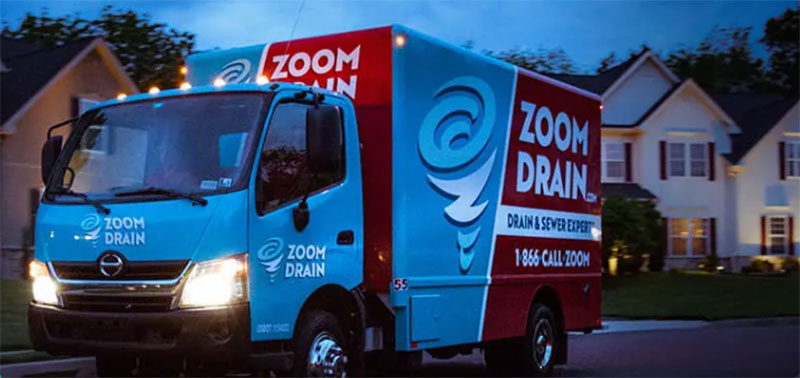
The franchisor will designate a protected territory where the franchisees will operate their business. Before signing any Franchise Agreement, both the franchisor and the franchisee will agree on a geographic territory.
The franchisor will base the protected territory on contiguous zip codes that will consist of approximately 500,000 individuals. This will be based on the most recent U.S. Census data at the time of signing the franchise agreement. This means that as long as the deal is taking effect, the franchisor or its affiliates will not locate, operate, or grant a franchise for another Zoom Sewer and Drain Cleaning business within the protected territory.
Obligations

The franchisor requires the franchisee or its principal owner to exert every effort to take responsibility for the management of the business. They will do this on a daily basis unless they agree on an alternate arrangement. With the franchisor’s discretion, the franchisee can hire a manager to handle the operations of the business.
Franchisors will also require you to sell products and services that have their approval. On the other hand, franchisees aren’t allowed to sell unauthorized products or services in compliance with the franchise agreement. Franchisees are also not allowed to solicit business outside of the protected territory. They are, however, permitted to serve customers outside of the protected territory as written in the FDD.
Term of Agreement

The initial franchise will take ten years after the signing of the agreement. You can renew the contract for another ten years, for four times, if you continue to meet the requirements.
Financial Assistance

Zoom Sewer and Drain Cleaning doesn’t offer direct or indirect financial assistance to its franchisees. In addition, they will not guarantee a franchisee’s note, lease, or obligation.
Did You Know?
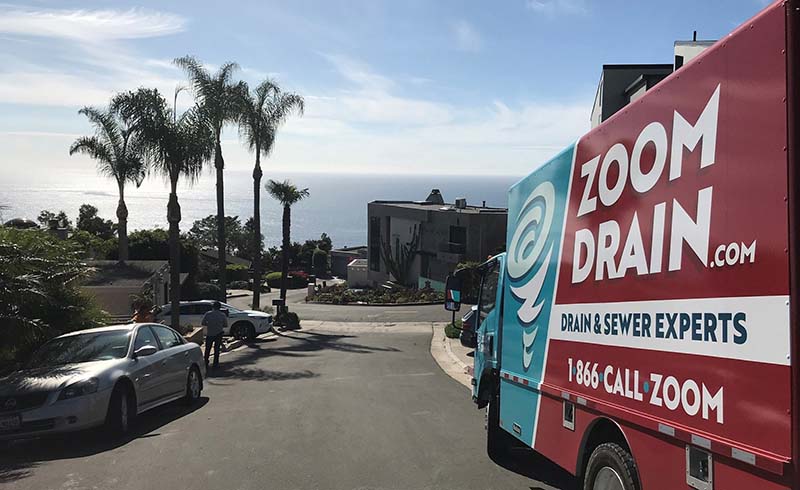
Get to know more about Zoom Sewer and Drain Cleaning before you get that franchise. Here are some facts about the business:
- They have very little competition in the niche. Most of their competitors are independent plumbers and contractors
- According to the company’s co-founder and COO, Ellen Rohr, this is a recession-resistant business, and the Covid-19 pandemic has proven this
- They have a reported $12 million in revenue with 53 employees and 15 franchisees
Your Investment
The table below shows the estimated cost of a Zoom Sewer and Drain Cleaning franchise. Take note that these numbers may change without any prior notice.
| Name of Fee | Low | High |
|---|---|---|
| Initial Franchise Fee | $35,000 | $35,000 |
| Lease | $3,000 | $9,000 |
| Leasehold Improvement | $2,000 | $40,000 |
| Furniture, Fixtures and Computer System | $7,500 | $13,000 |
| Vehicles | $7,000 | $9,500 |
| Vehicle Wrap and Design | $4,500 | $5,500 |
| Initial Equipment and Inventory of Supplies | $40,000 | $50,000 |
| Business Licenses and Permits; Deposits and Pre-Paid Expenses | $0 | $5,000 |
| Professional Fees | $500 | $3,000 |
| Insurance – Quarterly | $4,000 | $6,000 |
| Initial Training Expenses | $500 | $3,000 |
| Initial Marketing Expenses | $45,000 | $60,000 |
| Additional Funds – 6 months | $50,000 | $100,000 |
| ESTIMATED TOTAL | $199,000 | $341,000 |
Other Costs
| Type of Fee | Amount |
|---|---|
| Royalty Fee | 5% of Net Sales. |
| Marketing Fee | Up to 2% of Net Sales. Currently, the franchisor does not charge this fee. |
| Call Center Fee | Up to $25 per scheduled appointment. Currently, the franchisor does not operate the Call Center or charge a Call Center Fee. |
| Technology Fee | The then-current Technology Fee; currently $500 per month. |
| Webpage Development and Optimization Fee | The then-current fee charged by the franchisor’s designated website SEO provider; currently $695 per month. |
| Additional Location Fee | The then-current Additional Location Fee; currently $2,000. |
| Transfer Fee | Up to 50% of the then-current Initial Franchise Fee. |
| Renewal Fee | Up to 25% of the then-current Initial Franchise Fee. |
| Additional Training and Assistance | Fee and all expenses. Currently $1,000 per day plus travel expenses. |
| National Conference | Reasonable fees and all expenses. |
| Testing for Supplier Approval | Reasonable fee. |
| Interest on Late Payments | Lesser of 1.5% per month or maximum legal rate. |
| Audit Fee | Cost of audit. |
| Taxes | Actual cost. |
| Indemnification | Will vary under circumstances. |
| Costs and Attorneys’ Fees | Will vary under circumstances. |
For other franchising information, check out more articles here at Franchise How!


The Rise of Paris Banh Mi Franchise

Chick-fil-A Franchising Opportunities in 2024

Insider Interviews: Craig Batiste Co-Founder and CEO of Mr. Fries Man

The Top 8 Most Expensive Franchises to Buy

12 Cheapest Restaurant Franchises With Low Total Investment

